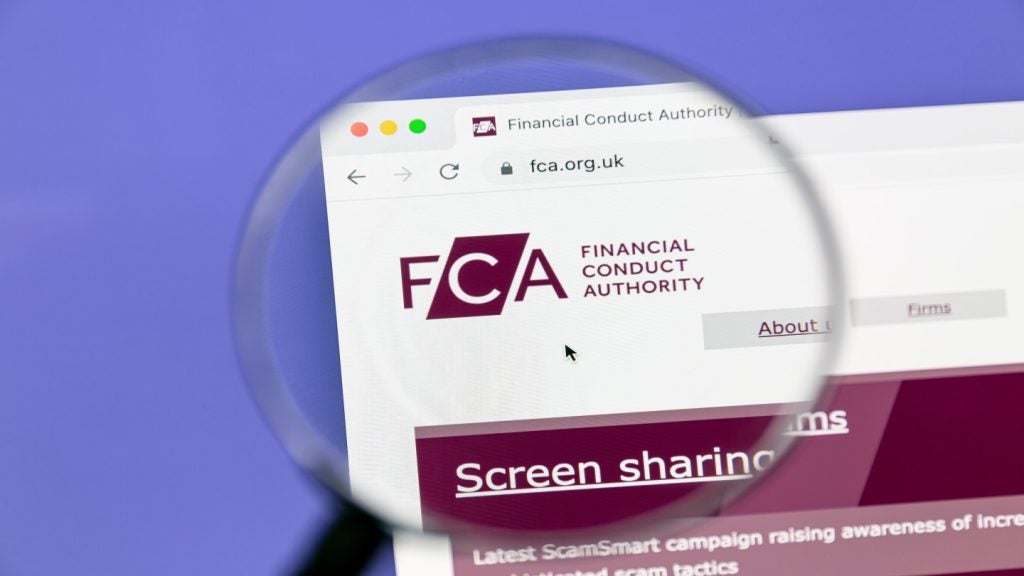With small and medium businesses in need of funding to spur automotive growth, Richard Brown speaks to Simon Gray of Credo Asset Finance, a company using local knowledge to move metal.
One of the headlines from this summers summit held by the Society of Motor Manufacturers and Traders (SMMT) in Canary Wharf was the need for funding by small and medium businesses in the UK.
With local firms and dealerships in need of competitive finance but the size of smaller fleets falling between retail and larger corporate contracts, East Anglia-based Credo Asset Finance is a broker able to salvage deals using both local knowledge and a thorough underwriting practice.
Simon Gray has owned and run Credo for seven years, taking it from brokering asset deals for IT, agricultural and construction equipment; from contract hire for company cars to sourcing and disposing of vehicles; to writing select deals on its own book since 2010, and now aiming to recover £25,000 a year for individual dealerships by use of the companys UK-wide Agreed Finance package.
Richard Brown: The SMMT summit said the motor industry was crying out for asset finance. Does Credo think that it can step in to help?
Simon Gray:Definitely, were filling a bit of a void. The majority of finance lenders out there Black Horse, Santander and others are retail funders. Its all going to be credit-score based.
How well do you really know your competitors?
Access the most comprehensive Company Profiles on the market, powered by GlobalData. Save hours of research. Gain competitive edge.

Thank you!
Your download email will arrive shortly
Not ready to buy yet? Download a free sample
We are confident about the unique quality of our Company Profiles. However, we want you to make the most beneficial decision for your business, so we offer a free sample that you can download by submitting the below form
By GlobalDataThese finance providers also give bonuses to the dealerships and the groups, preferential stocking loans as well, so its important they are used but where they fall flat, and where deals are being missed, are on the business-user side which is where we step in.
If its a limited company, for example, lenders tend to get very twitchy over £25,000 if the companys lost money in the last year. Lets face it, in the credit crunch, there have been a lot of companies which have lost money.
Theyre being declined by those general providers. Maybe theyve got a negative balance sheet or theyre a new-start company, theyd be declined as well.
Its having the products available. Thats where we go in: People who are spending that bit more on the car and probably need a more savvy agreement.
They dont want a fixed rate at 12% APR, they might want a variable rate agreement, or they might be a farmer and want annual payments.
RB: Is there a problem with securing cash in the motor industry?
SG: Through car dealerships, definitely, and in general.
Our specific Agreed Finance offering is to the car and van dealerships across the country. Weve really honed our USP to the dealers.We dont go in trying to nick a few deals here and there.
We dont want to affect their bonus level or their stocking level, but the minute a deal falls out of the remit of retail funders, thats where we step in and rescue the deal, which secures the sale of the metal but hopefully some finance income for them as well.
We get 80% of our proposals agreed.
RB: So you provide a catch-all safety net?
SG: We dont see ourselves as a subprime lender. If somebodys got six CCJs (County Court Judgements) and theyre messy, then theyre messy.
What were about is doing a little bit of research, finding out why a business has lost money, maybe counter-acting that with some management figures that prove theyre back in to profit; maybe doing some research on somebodys credit file.
They may have a CCJ through a dispute, they may have something on there they didnt know anything about, a previous address; we can do the research to make sure what should have been a good deal happen.
More often than not, the dealer knows if the customer is good or bad and, if hes good and he gets declined, then dealers are at a loss as to know what to do.
The problem with the retail funders is the dealers dont get any feedback as to why.
Those funders just have stock decline answers. Theyve failed to meet a minimum credit criteria, referred them to a credit search, or whatever it might be.
If dealers get one decline, chances are theyll just prop it to another retail lender who comes up with the same result, sometimes a third.
Theyve wasted three credit searches, probably wasted a day of their time re-proposing it on different systems and they are no further forward in knowing whether the deal is good, bad or indifferent.
RB: Were talking about thorough manual underwriting?
SG:Exactly. We dont use credit scores. If it doesnt pass, [big companies] havent got a mandate to override their systems.
People say: I score 60 out of 100, and thats irrelevant to us. We dont look at that and nor do our lenders.
RB: Is there then a backlash against this for smaller or more-niche companies to do more manual underwriting?
SG: I think so but I dont think the retail lenders have got an appetite to do that. Theyve got their credit score systems, and theyre happy with their defaults.
In their mind, their systems work for them. It doesnt necessarily work for the dealerships. Theyre a bit immovable, really.
It works for them, it produces the right defaults and theyre not prepared to override it or look at something different.
If you think about the culture in the finance company industry at the moment, with the credit crunch as it is, if a deal declines, for whatever reason on their system, theyve got to be a brave man to say: No, actually, our system was wrong and Im going to say yes, because if that deal subsequently goes wrong, its their head on the chopping block.
They run a bit scared from the pressure that that gives.
Weve got a whole raft of different lenders and theyre all specialist business lenders. We have people like ING Lease, who are one of the biggest commercial lenders in the country these days, Close Brothers and many others, including quite a few small independents.
Weve also got our own book for local business in East Anglia.
RB: Are there gaps for those who manually underwrite to lend to individuals?
SG: I agree there is room for the people who start looking more closely. We use one or two retail underwriters who underwrite manually so we do have that facility.
We get statistics from our lenders as to the default on our book, bearing in mind were using the flexible lenders, not the credit score lenders, and our default levels are minimal, very minimal. Probably much less than the credit score underwriters would have on their book.
It just shows that it can be done correctly and come up with the right result where youre not putting rubbish on the books.
RB: What are the immediate plans at Credo at a local level?
SG: We deal in the whole of East Anglia but we do country wide referrals from existing clients. What were doing with the Agreed Finance is pushing it out regionally so were now, for the next three or four months, going to employ reps on the periphery of East Anglia. Well start with south Essex, up to Bedfordshire, Lincolnshire, and then hopefully keep working outwards regionally.
RB: Is there an appetite for people to avoid using big retail lenders but to go through companies with specialist local knowledge?
SG: Its a mix and match scenario. We dont see a panacea for every deal.
We can do every deal but what we cant do is give the other support that the big retail funders give them. But, understanding the locality, were a bit lucky in East Anglia because its not like Greater London or Liverpool or Manchester where theres a lot of sub-standard business about.
In East Anglia theres very little fraud, and generally, the quality of the customers is slightly better. We havent got the big, urban expanses that breeds fraudulent activity, and slightly sub-standard business, based on peoples quality of life and disposable income.
RB: Is there a catch-22 in that, to do enough retail for a company to thrive, the size requires it to underwrite automatically?
SG: It is a catch-22. Youve got to have a low default, but we have that anyway. On our book weve got nearly nil default. With our lenders with which we do place business, weve got 0.2% in arrears, certainly with our £15m book with ING. Thats ridiculously low. Nationally the retail funders probably work on 1% or 2%.
RB: What does Credo particularly offer garages and dealerships in East Anglia?
SG: We understand the business user and none of the garages normal finance channels do, weve got enough lenders.
Its a funny process, its one that you learn over time, but you get the deal in and you pigeonhole it, based on the age of the vehicle or the length of period they require, or the type of customer. Youll lend or underwrite on that basis. Its knowledge of what that particular lender will then require to make that deal happen.
Its all part of the pre-underwriting process. Its really directed research to find out who that deals going to, only one lender at a time. We never multiple prop, we get it to the right lender with the right information, first time, to get the deal agreed in the minimum time.
RB: Does that thoroughness allow you to write retail deals?
SG: Its because of the way we underwrite. We will pre-search customers.
Rather than just surmise why their credit score has sailed, we will credit-search them on the basis that we may even be able to do it on our own book.
Quite often, people are declined, we will find many, many, many times, for a default on their phone bill that goes back three years and its a default of £50.
RB: Is the wave of automatic underwriting that counts these customers out the biggest problem facing the garages and dealerships?
SG: I think so and also never getting the explanation why.
Sometimes it’s even stranger things like having a date of birth wrong or an address incorrect.
Especially in the rural areas around here, you can have an address with two different postcodes, on the corner of the street or old rural properties, or even two properties have now become one or vice versa. You get real problems on the voters roll.
If theyre not getting located, because of some weird anomaly on the address, theyll fail the credit score. Again, through our pre-underwriting, thats what we find out. We will search, if we cant find them, well get on to the Royal Mail website and research the address.
But thats a manual process. You cant get a computer to do that, can you?
richard.brown@vrlfinancialnews.com







